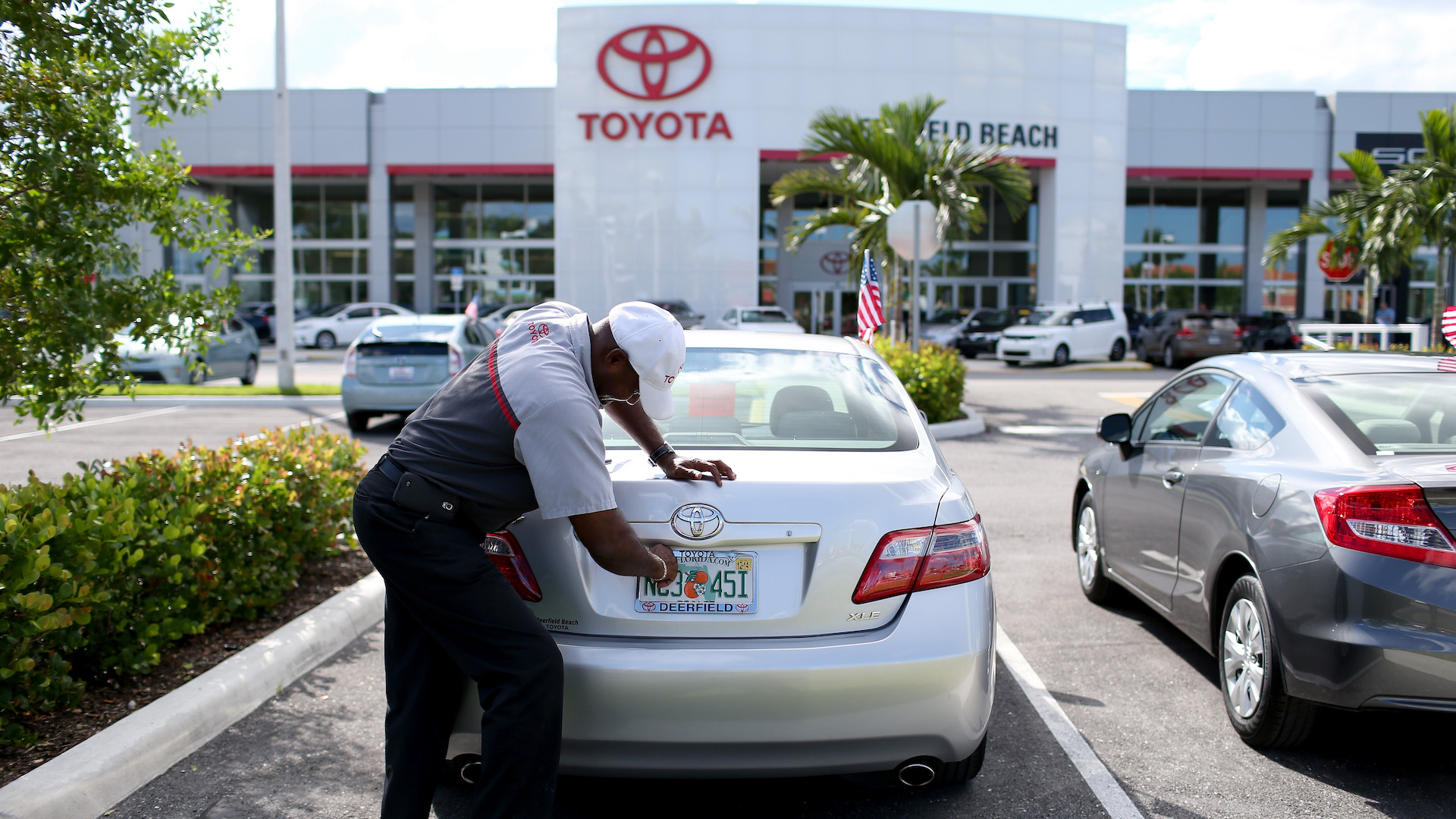

In a blow to automakers and consumers alike, Florida Governor Ron DeSantis ratified a bill that delivers strong protection for the legacy auto dealership model.
The bill, which was signed into law on Monday, includes provisions to ban existing automakers with a dealer model from offering direct-to-consumer sales. It also includes requirements for dealerships to be compensated for post-sale vehicle upgrades and protects them from manufacturer-set pricing, should an automaker decide to fight back against markups.
Now, automakers like Tesla, Rivian, and others that already have a direct-to-consumer model without existing dealerships are in the clear. This specific area of the law only prohibits legacy automakers with existing franchises from offering direct sales in order to prevent consumers from bypassing the dealership in their buying experience.

“In doing that, we made a clear delineation between a manufacturer that has never had dealers and maybe never will, and those who have been heavily dependent upon their dealerships to be their marketing and sales presence in Florida,” Ted Smith, president of the Florida Automobile Dealers Association told Automotive News.
FADA argues that by cutting out the dealership, consumers will end up paying higher prices and have less customer service.
Another measure included in the signed bill gives further protection to dealerships that want to make large profits on cars. More specifically, it prevents automakers from setting prices that dealerships must abide by—a measure that some major automakers are looking to move towards as dealership markups soar for hard-to-acquire vehicles. It would also require manufacturers to equitably distribute vehicles across their franchised dealerships.
The law will also require dealerships to be compensated for over-the-air vehicle upgrades and activations. Rather than fight the in-car subscription model, in which the automaker reaps the full benefit of any post-sale OTA upgrade, the law instead looks to protect the interest of the dealership by requiring that it be paid for any electronic upgrade or activation made by a consumer within two years of the vehicle purchase.
Meanwhile, OEMs and industry trade groups are vehemently rejecting the idea that dealerships should be paid for something they have no part in reselling.
“Manufacturers want to compensate dealers if they helped a customer perform an over-the-air update,” said Wayne Weikel, vice president of state government affairs for the Alliance for Automotive Innovation in a letter to Governor DeSantis. “We reject, however, the premise entirely that dealers should be compensated for products they did not develop, sales they did not make, services they did not perform, and assistance they did not provide.”
It’s hard to deny that this move by Florida legislators feels quite anti-consumer. From preventing dealer markups (which played a key role in record-high inflation over the past few years) to sullying the buying experience, and even potentially driving up the cost of in-car software sales by requiring dealers to be compensated for post-sale upgrades performed without their involvement, there are a number of provisions which do not appear to directly benefit the buyer. Instead, they protect the dealership in the midst of shifting industry trends.
Got a tip or question for the author? Contact them directly: rob@thedrive.com